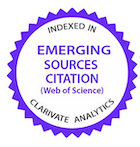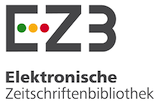Política de ética em publicação

Diretrizes para boas práticas na comunicação científica
Última atualização: 14/11/2025
A revista Ciência Animal Brasileira/Brazilian Animal Science (CAB) segue os princípios e padrões no cumprimento dos critérios éticos em todas as etapas do processo de publicação de um artigo, o que envolve os autores, os editores e os avaliadores. Para tanto, seguimos as diretrizes gerais estabelecidas pelo Committee on Publication Ethics (COPE).
Estamos comprometidos em identificar e impedir a publicação de artigos em que sejam verificáveis a ocorrência de má conduta de pesquisa ou violações éticas, especialmente os casos de plágio, manipulação de citações, falsificação/fabricação de dados, ausência de autorizações pertinentes, veiculação de opiniões discriminatórias, entre outros.
Para apurar fatos e determinar as ações necessárias na resolução dos casos de retratação e manifestação de preocupação, a CAB segue o que é preconizado no fluxogramas COPE. A investigação se estende tanto às submissões quanto aos artigos já publicados. Caso haja alguma denúncia ou observação de má conduta cometida por qualquer parte dos envolvidos durante o processo editorial, iremos paralisar o referido processo para a devida investigação, mediante aviso prévio a todos os envolvidos. O processo de avaliação somente será continuado se não for comprovada a má conduta. No caso de constatação de má conduta por parte de autores, o artigo será retirado do processo de avaliação, inclusive podendo o periódico, ante decisão do corpo editorial, recusar-se a receber futuras submissões dos autores. Quando a má conduta for efetivada por um ou mais dos editores este/s será/ão afastado/s das suas atribuições no periódico. E se a má conduta for praticada por um avaliador, este não prestará novas contribuições para o periódico, sendo desativada sua função de avaliador.
A CAB, portanto, assume a responsabilidade de publicar correções, esclarecimentos, retratações, dentre outros esclarecimentos que se façam necessários. Logo, caso a má conduta seja identificada após a publicação de um artigo, pode ocorrer de este precisar ser atualizado com dados complementares, com correções, com retratações ou com sua retirada integral.
 1 Princípios éticos exigidos para editores
1 Princípios éticos exigidos para editores
A prática editorial e a relação do editor com os envolvidos na publicação (autores e avaliadores e demais membros da equipe editorial) estão amparadas no código de conduta para Editores. Os editores tem o dever consolidar a política editorial da Revista, supervisionando todo o fluxo editorial a fim de garantir a qualidade, transparência, prevenção e identificação de más condutas.
É de responsabilidade do editor a decisão sobre quais artigos serão publicados, fundamentado na relevância e originalidade, no conteúdo intelectual, sem distinção de raça, sexo, orientação sexual, crença religiosa, origem étnica, nacionalidade, ou a filosofia política dos autores, observando sempre os requisitos legais em matéria de difamação, violação de direitos autorais e plágio.
Não é permitido ao editor divulgar qualquer informação sobre um manuscrito submetido a qualquer outra pessoa que não esteja envolvida no fluxo editorial, devendo se recusar de avaliar manuscritos nos quais tenha algum conflito de interesse resultantes de relacionamentos competitivos ou colaborativos ou qualquer outro tipo de relacionamento ou conexões com qualquer um dos autores, empresas ou (possivelmente) instituições que estejam ligadas/conectadas aos artigos. Cabe ainda aos editores selecionar avaliadores de modo a minimizar possíveis conflitos de interesse.
Uso de IA generativa e tecnologias assistidas por IA por editores: O editor e/ou qualquer membro da equipe editorial não deve carregar um manuscrito enviado ou qualquer parte dele em uma ferramenta de IA generativa. A IA generativa ou as tecnologias assistidas por IA não devem ser utilizadas pelo editor para auxiliar na avaliação ou no processo de tomada de decisão de um manuscrito. O editor é responsável pelo processo editorial, pela decisão final e pela comunicação dessa decisão aos autores.
 2 Princípios éticos exigidos para autores
2 Princípios éticos exigidos para autores
Os autores devem estar em observância a política editorial da revista e as normas de apresentação indicadas em diretrizes para autores. Devem também garantir que o artigo é inédito e que ele não foi submetido simultaneamente ou já está publicado em outro periódico (em parte ou integral), sendo que, artigos enviados a um servidor de pré-print reconhecido, tais como, BioRxiv e SciElo préprints, não são considerados pela CAB como publicação prévia.
Os autores devem garantir que suas obras sejam totalmente originais e que as fontes sejam devidamente citadas ou cotadas. Todos os manuscritos enviados a CAB são submetidos a um software de detecção de plágio, para evitar má conduta e garantir a originalidade do trabalho escrito. Plágio em todas as suas formas constitui um comportamento antiético de publicação e é inaceitável. Suspeitas ou acusações de plágio serão investigadas pelo corpo editorial e, caso sejam confirmadas, serão tomadas alguma das seguintes ações: suspensão do processo editorial, para manuscritos ainda em fase de avaliação; publicação de retratação, em caso de artigos já publicados.
Os autores devem garantir que a autoria deve ser limitada a aqueles que fizeram uma contribuição significativa para o artigo, seja para a concepção, execução ou interpretação dos resultados. A contribuição de cada autor deve ser informada ainda no ato da submissão seguindo a taxonomia indicada pelo CRedit (Taxonomia de Funções de Contribuidor) que inclui 14 categorias que normalmente são desempenhadas para a produção científica acadêmica. As informações de colaboração são adicionadas ao PDF de cada artigo publicado. Colaboradores que não atendam aos critérios de autoria devem ser citados nos agradecimentos.
Os autores devem apresentar a declaração de existência do conflito de interesse que poderiam levar a influenciar os resultados ou a interpretações. Também é obrigação do autor informar o Editor da revista caso descubra algum erro ou imprecisão em seu próprio artigo já publicado. Os autores mantêm os direitos autorais e concedem à revista o direito de primeira publicação, com o trabalho licenciado sob Licença Creative Commons (CC-BY 4.0). Após a publicação dos artigos, os autores permanecem com os direitos autorais e de republicação do texto.
O uso de IA generativa e ferramentas assistidas por IA por autores: é permitido para autores o uso de IA apenas para melhorar a clareza e a linguagem do texto, sempre com supervisão humana, cabendo aos autores a responsabilidade total pelo conteúdo. O uso dessas tecnologias deve ser declarado no manuscrito, e essa informação constará na versão publicada. Não é permitido utilizar IA para criar ou alterar imagens, incluindo aprimorar, ocultar, mover, remover ou adicionar elementos. São aceitos apenas ajustes básicos (brilho, contraste, cor), desde que não modifiquem informações originais. A única exceção ocorre quando a IA faz parte dos métodos de pesquisa, caso em que o uso deve ser descrito de forma reprodutível, incluindo ferramenta, versão e fabricante. Os autores devem seguir as políticas das plataformas utilizadas e atribuir corretamente o conteúdo. IA não pode ser listada como autora ou coautora, pois autoria requer responsabilidades exclusivamente humanas.
 3 Princípios éticos exigidos para avaliadores
3 Princípios éticos exigidos para avaliadores
Para realização da atividade de avaliação, os avaliadores devem se fundamentar no mérito do trabalho, cabendo comunicar ao corpo editorial qualquer suspeita de conflito de interesses que possa comprometer a lisura do processo de avaliação, seja esta de ordem pessoal, financeira, intelectual, profissional, política ou religiosa. As submissões e os detalhes das revisões devem ser mantidos sob confidencialidade. Informação privilegiada ou ideias obtidas através da avaliação pelos pares devem ser mantidas em sigilo e não utilizados para proveito pessoal.
É dever do avaliador responder a solicitação de avaliação dentro do período estabelecido, mesmo que para decliná-la, e atender aos prazos de entrega da avalição estipulados pelos editores ou informar sobre possíveis atrasos. Os comentários da avaliação devem ser feitos de forma objetiva e construtiva, sendo inadmissível palavras impróprias e/ou de cunho racista e demais opiniões discriminatórias.
Uso de IA generativa e tecnologias assistidas por IA por avaliadores: o manuscrito deve ser tratado como um documento confidencial. Os revisores não devem carregar um manuscrito enviado ou qualquer parte dele em uma ferramenta de IA generativa. Essa exigência de confidencialidade se estende ao relatório de revisão por pares, pois ele pode conter informações confidenciais sobre o manuscrito e/ou os autores. Por esse motivo, os revisores não devem carregar seu relatório de revisão por pares em uma ferramenta de IA, mesmo que seja apenas com o objetivo de melhorar a linguagem e a compreensão.


























